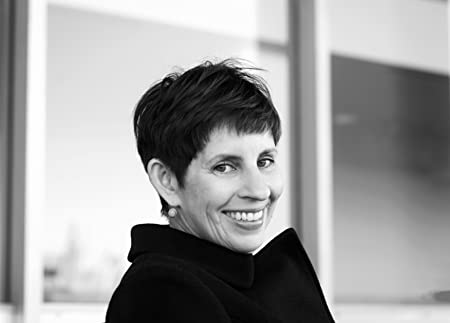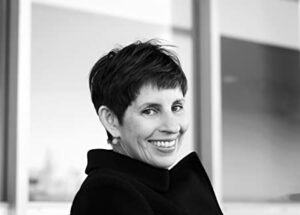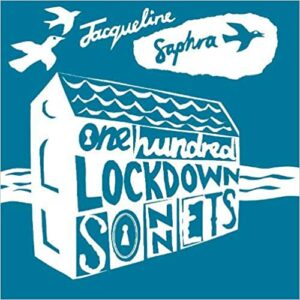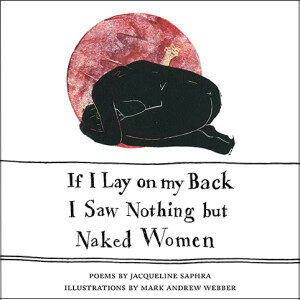
JULIA LEE BARCLAY-MORTON – YOGA, WATER AND REWRITING AUTISM
I interviewed writer Julia Lee Barclay-Morton about her experience of autism. Julia began as an experimental dramatist in New York, moving to the UK to


I interviewed poet, editor, agitator, teacher, organiser and word-enthusiast Jacqueline Saphra, who has spearheaded several poem-a-thons raising funds for charity, is a founder of Poets for the Planet and teaches for The Poetry School.
Among her several published collections, The Kitchen of Lovely Contraptions (flipped eye publishing) was nominated for the Aldeburgh First Collection Prize and All My Mad Mothers (Nine Arches Press) was shortlisted for the T.S.Eliot Prize.
Leslie: How has your poetic voice changed and developed from your earliest attempts to today?
Jacqueline: My earliest attempts at poetry were when I was about five years old (I loved the Oxford Book of Children’s Verse), so quite a lot of changes between then and now! But if I think back over the past 25 years or so, I’d say I have experimented more and have a wider grasp of different forms, from given forms to open forms, to self-created forms. Generally I am more willing to take risks and get out of my comfort zone – which is probably rhyme and metre. Lately I have been writing some very spare, short forms as well as some longer ‘proems’ – something between prose and poetry, which will find their way into my next collection. The key to my own practice is to keep evolving and changing, not to lean on previous methods or approaches.
Leslie: Can you tell the story, please, of your youthful ‘success’ as a writer and how experience has deepened and changed your writing since.
Jacqueline: Not sure I had youthful success as a writer, or indeed how I would measure it. I wrote plays, many of which were produced, but I was too young to build a strong practice. I moved on to film and spent many years in development hell in the industry. There was very much less support for new writers in those days; you were pretty much left alone to your own devices. I think some mentoring early in my career would have changed everything. My main measure of writing success is internal, not external. Prizes, recognition, publication are obviously important, but the key to any lasting writing practice is to love what you do and be willing to engage fully in the struggle, not to focus on the result, but on the process and see so-called ‘failure’ as a necessary part of the adventure.. And that is a private matter. See my essay in ‘Why I write poetry’ from Nine Arches Press ‘Keep Ithaka Always in Your Mind: On the Journey and the Value of Poetry’.
Leslie: In broad outline, what’s the process of writing a poem for you? In detail, what habits/tics/rituals/practices do you adopt to help you write well?
 Jacqueline: They start in many different ways. Very, very occasionally a poem will arrive pretty much fully formed on the page. Mostly I write a great deal in a free form kind of way and then begin to mine what I have written to try and find out what the poem is telling me. I try to let the poem lead the way. When I am working on more of an applied poetry kind of project, like my One Hundred Lockdown Sonnets, the form is the guide: rhyme, metre and shape – leading to some surprises. I am always waiting for surprises and discoveries. A lot of work never reaches fruition, but is sometimes the foundation for other poems. I believe firmly that no work is ever wasted even if it never finds its way into the outside world. Mostly I just need somewhere quiet to work. I have my own study and I put a ribbon on the door handle to indicate I am at work and must not be disturbed unless it’s a matter of life and death. If I want to write, but nothing is happening, I read poetry. Eventually something unlocks.
Jacqueline: They start in many different ways. Very, very occasionally a poem will arrive pretty much fully formed on the page. Mostly I write a great deal in a free form kind of way and then begin to mine what I have written to try and find out what the poem is telling me. I try to let the poem lead the way. When I am working on more of an applied poetry kind of project, like my One Hundred Lockdown Sonnets, the form is the guide: rhyme, metre and shape – leading to some surprises. I am always waiting for surprises and discoveries. A lot of work never reaches fruition, but is sometimes the foundation for other poems. I believe firmly that no work is ever wasted even if it never finds its way into the outside world. Mostly I just need somewhere quiet to work. I have my own study and I put a ribbon on the door handle to indicate I am at work and must not be disturbed unless it’s a matter of life and death. If I want to write, but nothing is happening, I read poetry. Eventually something unlocks.
Leslie: Your poems are very direct and passionate. How much of that is worked on in edit and how much is spontaneous? Do you trust to instinct & flow or industriously build up layers of meaning? Is there a checking process afterwards?
Jacqueline: Oh, are they? I think the initial emotional impulse is indeed an impulse, and it’s important not to disrupt that in the editing process. But I do a lot of editing in general as the poem finds its shape, which often happens in later drafts. I experiment with lots of different forms. I never trust just to instinct. That is important early, but later craft must kick in. I used to run a course called ’Training the Poem’. It arrives wild; it needs training but not taming. I think I am quite industrious, especially around examining metaphor, making sure it works for the poem, that it doesn’t contradict itself. But I will also check the lexicon of the poem, its tone, its consistency (even if it is inconsistent, I make sure that its inconsistency is consistent).
Leslie: Tell us about your latest collection. What were the easiest and most difficult parts to write? Why?
Jacqueline: The last collection was ‘One Hundred Lockdown Sonnets’. I wrote one sonnet a day during the first lockdown, a form someone recently described to me as ‘applied poetry’. Sometimes it was difficult to find subject matter, being locked down! Also the sonnet form requires some technical skills as well as subject matter, and writing one in the course of the day was a bit like doing maths sometimes, just finding the way to make the formula work. The material would often come from reading the newspaper or the news. There were days when it was obvious what I’d write about, because of an experience I’d had, or what was happening in the outside world. Like Trump suggesting we inject ourselves with disinfectant, or the murder of George Floyd. Or my daughter getting covid. In the editing process, the hardest bit was making the closing couplets of the Shakespearean sonnets really work and sound natural: that modern dilemma of how to wrap up a poem without wrapping up a poem, how to create a little ’turn’ right at the end that rhymes, without it sounding artificial. Just one of those could take days of frustration and experimentation.
Leslie: Could you select a short-ish poem of yours, say why you chose it and offer any background information that would help the reader to appreciate it at a deeper level, please?
Jacqueline: I wrote this poem based on my daily walks during the first lockdown. The spring was gorgeous, maybe because time outside felt precious, maybe because the air was so much cleaner. I was constantly struck by the insouciance of the natural world, that it just gets on with its usual processes wherever it can. I used to listen to podcasts and music while I was out, and I asked my daughter for a recommendation for something uplifting. She suggested Dolly Parton, which was surprising to me coming from her, but it really did lift my spirits, so I wanted to pay tribute to Dolly as part of this sonnet. Times, of course, were and are, uncertain, but a key to living through uncertain times is to engage with the present moment, and live as fully and vibrantly as you can.
Sonnet XXIII 14th April 2020
“Yes, I think you can say the worst is over,” Governor Andrew Cuomo
London’s gone psychedelic: parakeets
glow luminous through branches, the high grass
is surely tripping with the trees on speed.
The sky is flirty blue, the clouds are cast
in platinum, leaf speaks in tongues
of awe as fledgling redbreasts get their kicks
on Stepney Green, crowd-sourcing their songs.
Nature performs her usual tricks: pulling chicks
from eggs and rabbits out of rabbits. Voila! –
and today I’m walking out with Dolly Parton
Nine to Five, glutted with song and colour,
sun turned to extra shine, my heart on
double shifts. A shaking happiness steals in.
It will not last; I hold it while I can.
Leslie: How have collaborations with other art forms & their practitioners affected your writing?
 Jacqueline: With my roots in theatre, I’ve always enjoyed the collaborative process. It broadens my horizons, it expands my repertoire and gives me new ways of thinking. I’ve worked with visual artists (see my book from The Emma Press ‘If I Lay on my Back I Saw Nothing but Naked Women’ which was a collaboration with Mark Andrew Webber). I’ve also worked extensively with Benjamin Tassie, a composer, and we created a live show with piano and cello to go with the prose poems in that book. Most recently I’ve collaborated with Nora Nadjarian, a Cypriot Poet as a commission from The Poetry Society and Eunic (the EU National Institute for culture) which involved an email correspondence towards creating material for new poems. That has been both surprising and nourishing. https://poetrysociety.org.uk/event/new-european-poetry-night-online/
Jacqueline: With my roots in theatre, I’ve always enjoyed the collaborative process. It broadens my horizons, it expands my repertoire and gives me new ways of thinking. I’ve worked with visual artists (see my book from The Emma Press ‘If I Lay on my Back I Saw Nothing but Naked Women’ which was a collaboration with Mark Andrew Webber). I’ve also worked extensively with Benjamin Tassie, a composer, and we created a live show with piano and cello to go with the prose poems in that book. Most recently I’ve collaborated with Nora Nadjarian, a Cypriot Poet as a commission from The Poetry Society and Eunic (the EU National Institute for culture) which involved an email correspondence towards creating material for new poems. That has been both surprising and nourishing. https://poetrysociety.org.uk/event/new-european-poetry-night-online/
I guess the poem-a-thons I’ve been involved with: poetry events involving scores of sponsored poets raising spirits – as well as money for charity, are also big collaborations in applied poetry – most recently Poets for Ukraine, where about fifty poets each read for five minutes. https://twitter.com/PoetsUkraine
I regard the practice of poetry as an ever-expanding universe where anyone and everything can contribute. I used to find certain subjects (physics, for example, or sport) to be uninteresting. Now I am interested in everything!
Next week, I interview UEA degree-qualified Environmental Scientist Kit Marie Rackley of Geogramblings about climate change.
ABOUT LESLIE TATE’S BOOKS:

I interviewed writer Julia Lee Barclay-Morton about her experience of autism. Julia began as an experimental dramatist in New York, moving to the UK to

I interviewed Gillean McDougall from Glasgow, who edited the collaborative projects Honest Error (on Charles Rennie Mackintosh and his wife Margaret Macdonald) and Writing the

I interviewed French writer Delphine de Vigan, whose book, No et moi, won the prestigious Prix des libraires. Other books of hers have won a clutch

I interviewed Joanne Limburg whose poetry collection Feminismo was shortlisted for the Forward Prize for Best First Collection; another collection, Paraphernalia, was a Poetry Book Society Recommendation. Joanne

I interviewed Katherine Magnoli about The Adventures of KatGirl, her book about a wheelchair heroine, and Katherine’s journey from low self-esteem into authorial/radio success and
| Cookie | Duration | Description |
|---|---|---|
| cookielawinfo-checkbox-analytics | 11 months | This cookie is set by GDPR Cookie Consent plugin. The cookie is used to store the user consent for the cookies in the category "Analytics". |
| cookielawinfo-checkbox-functional | 11 months | The cookie is set by GDPR cookie consent to record the user consent for the cookies in the category "Functional". |
| cookielawinfo-checkbox-necessary | 11 months | This cookie is set by GDPR Cookie Consent plugin. The cookies is used to store the user consent for the cookies in the category "Necessary". |
| cookielawinfo-checkbox-others | 11 months | This cookie is set by GDPR Cookie Consent plugin. The cookie is used to store the user consent for the cookies in the category "Other. |
| cookielawinfo-checkbox-performance | 11 months | This cookie is set by GDPR Cookie Consent plugin. The cookie is used to store the user consent for the cookies in the category "Performance". |
| viewed_cookie_policy | 11 months | The cookie is set by the GDPR Cookie Consent plugin and is used to store whether or not user has consented to the use of cookies. It does not store any personal data. |